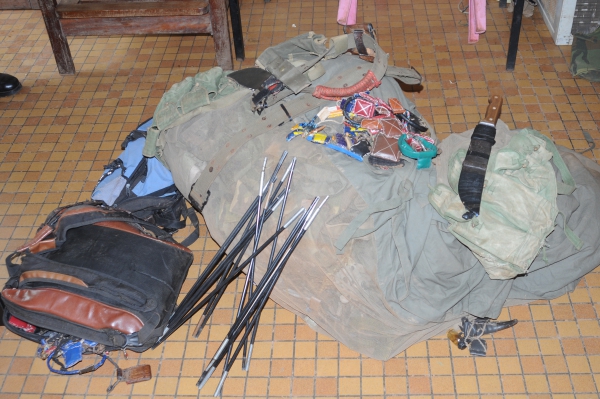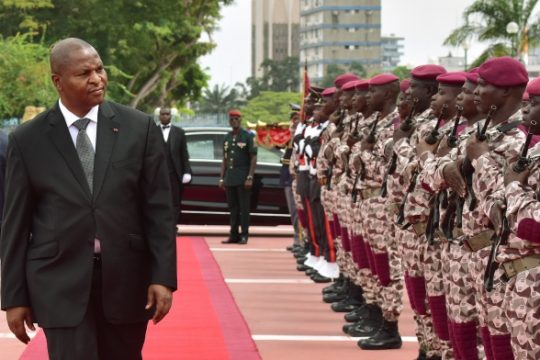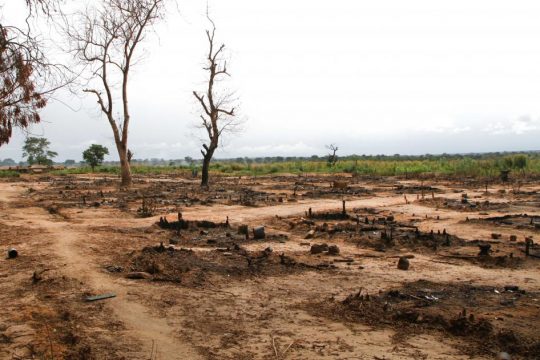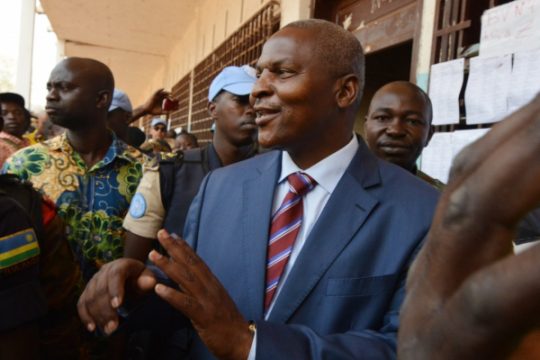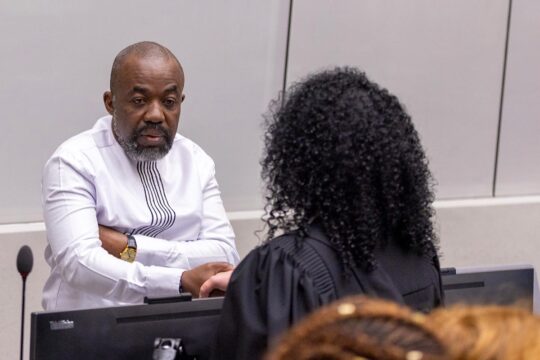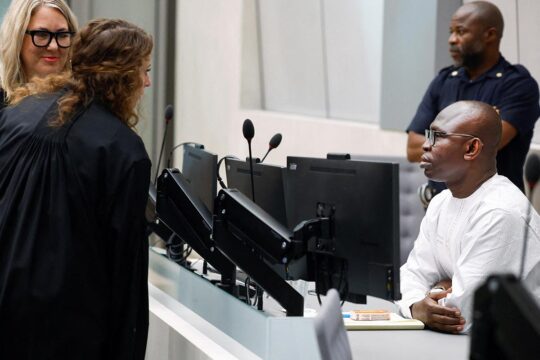Nearly a year after elected institutions were installed in the Central African Republic (CAR), armed groups continue to sow death in the country, despite relative stabilization of the capital, Bangui. Seleka and Antibalaka militia, no doubt encouraged by the total impunity they have so far enjoyed, do not seem ready to put down their weapons. In two separate reports, Amnesty International and Human Rights Watch call for the rapid setting up of the Special Criminal Court provided for in a law of 2015.
“Sectarian violence and attacks on civilians continued in central and western regions of the country,” says Human Rights Watch in its 2017 World Report, “most notably in the Ouaka, Nana-Grébizi, and Ouham-Pendé provinces where predominantly Muslim Seleka rebel groups, largely Christian and animist anti-balaka militias and other armed groups remained active. Civilians continued to bear the brunt of the fighting and armed groups raped and sexually assaulted women and girls.”
Out of a population of 4.6 million, “an estimated 467,800 people, the majority of them Muslim, remained refugees in neighboring countries and a further 384,300 remained internally displaced”, it continues. Human Rights Watch further stresses that the 10,000 UN peacekeepers and 2,000 police deployed across the country have not managed to restore peace and sufficiently protect civilians. It regrets that the efforts of the UN mission in the CAR have been marred with allegations that some of its peacekeepers exploited and sexually abused civilians, including children.
“Impunity for past abuses and war crimes remained pervasive,” the organization says, and progress toward the functioning of a Special Criminal Court in the national justice system has been slow. The report also notes that while the Prosecutor of the International Criminal Court (ICC) has continued her investigations, opened in September 2014, into suspected war crimes and crimes against humanity committed in the country since August 2012, no arrest warrant has yet been issued.
The law on creation of a Special Criminal Court within the national justice system was published in June 2015 by the CAR’s transitional president Catherine Samba-Panza. This court is meant to complement the work of the ICC, to which Samba-Panza’s government referred the situation in the CAR from August 2012. The Special Court is to be made up of national and international judges and staff, and is mandated to investigate and prosecute grave violations of human rights committed in the CAR since 2003.
“Impunity on a staggering scale”
Human Rights Watch’s concerns are shared by Amnesty International. “Thousands of victims of human rights abuses across CAR are still waiting for justice to be served, while individuals who have committed horrific crimes like murder and rape roam free,” says Ilaria Allegrozzi, Amnesty International’s Central Africa Researcher, in a report published on January 11. “This is impunity on a staggering scale, and it is undermining efforts to rebuild CAR and create a sustainable peace.”
“The only long-term solution to this entrenched impunity is the comprehensive overhaul of CAR’s national justice system, including by rebuilding its courts, prisons and police force,” she continues. “In the meantime, sustainable funding for the Special Criminal Court, including robust witness protection programmes, is an essential step towards justice.”
At the last donor conference in Brussels at the end of November, the new CAR government of President Faustin-Archange Touadéra presented a national reconstruction and peacebuilding plan, including a request for 105 million dollars to strengthen the judicial system and make the Special Criminal Court (SCC) operational.
While $5 million of the $7 million required for the first 14 months of operations has been secured, more needs to be done to ensure sustainable support for the first five years of the court’s operation, says Amnesty International.
“The SCC is essential to ensure that victims of some of the conflict’s most serious crimes will have a chance to see justice done in CAR, and should be given every support,” insists AI’s Ilaria Allegrozzi.
Dwindling conviction
The setting up of this Special Criminal Court will also depend on the political will of the CAR government, but people are less and less convinced nationally and internationally that the new CAR authorities will make it one of their priorities. In an interview with JusticeInfo last August, French jurist Didier Niewiadowski, a former advisor at the French embassy in Bangui (2008-2012), expressed the view that the new government in CAR had swept transitional justice under the carpet. He cited the provisional release of former Defence Minister Jean-Francis Bozizé (son of ex-president Bozizé) who is nevertheless under an international arrest warrant, and the fact that ex-Seleka war criminals also targeted by arrest warrants are still roaming free.
Seleka is a coalition of rebels who chased President François Bozizé from power in March 2013. The Seleka rebels, who committed many serious abuses against civilians, were fought by Antibalaka self-defence militia, who also committed violent acts against the population.




